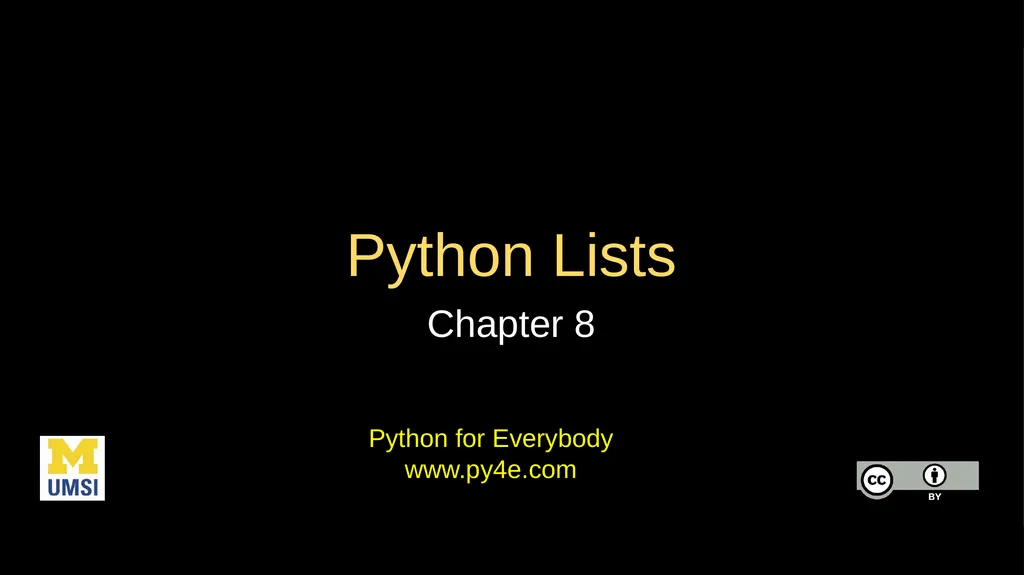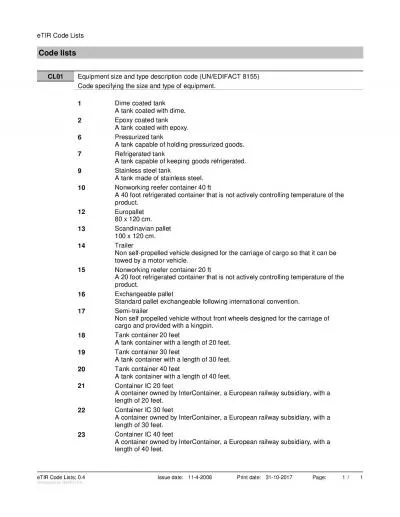
Author : myesha-ticknor | Published Date : 2025-05-23
Description: Python Lists Chapter 8 Python for Everybody www.py4e.com Programming Algorithm - A set of rules or steps used to solve a problem Data Structure - A particular way of organizing data in a computer https:en.wikipedia.orgwikiAlgorithmDownload Presentation The PPT/PDF document "" is the property of its rightful owner. Permission is granted to download and print the materials on this website for personal, non-commercial use only, and to display it on your personal computer provided you do not modify the materials and that you retain all copyright notices contained in the materials. By downloading content from our website, you accept the terms of this agreement.
Here is the link to download the presentation.
"Python Lists Chapter 8 Python for Everybody"The content belongs to its owner. You may download and print it for personal use, without modification, and keep all copyright notices. By downloading, you agree to these terms.










![[READING BOOK]-Illustrated Guide to Python 3 A Complete Walkthrough of Beginning P...](https://thumbs.docslides.com/970240/reading-book-illustrated-guide-to-python-3-a-complete-walkthrough-of-beginning-python-with-unique-illustrations-showing-how-python-really-works-now-covering-python-3-6-treading-on-python.jpg)
![[DOWLOAD]-Python Programming for Beginners An Introduction to the Python Computer ...](https://thumbs.docslides.com/970637/dowload-python-programming-for-beginners-an-introduction-to-the-python-computer-language-and-computer-programming-python-python-3-python-tutorial.jpg)

